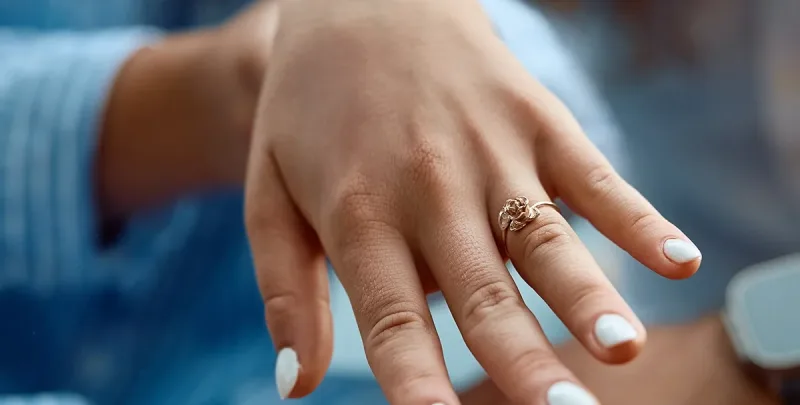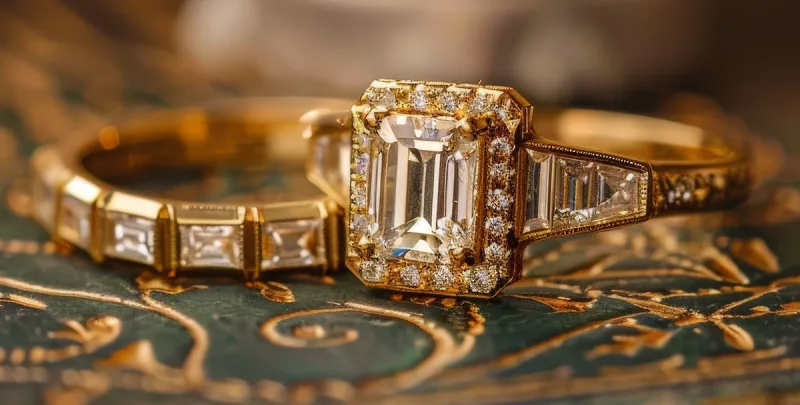It is an unfortunate, but well-known, fact that misplacing our treasured belongings is an all too common occurrence, and it’s likely that you, or somebody that you know, has lost a piece of jewellery over the years. However, new research by drainage specialists, Lanes Group, has unveiled shocking figures that highlight just how many of our misplaced treasures find their way into the sewerage system in the UK.
After Lanes Group joined forces with London-based water services provider, Thames Water, to recover the wedding ring of actor Pascal Gunter which had been lost down a drain during filming, a study was commissioned to investigate just how much jewellery in the UK suffers the same fate. The results were astounding.
Staggering statistics
Of 2,011 respondents, around one in five women (19%) had lost their jewellery to the drainage system, compared to just 8% of male respondents. Rather sadly, of the 42% of those surveyed who reported misplacing a ring, 15% had lost an engagement or wedding ring. While the average worth of a misplaced item was £335 in England, one particularly unfortunate respondent claimed to have lost a piece worth over £10,000. While approximately a quarter of those surveyed reported that they had managed to recover their jewellery from the drains, researchers estimate that a staggering £1.6 billion worth of jewellery could have been lost to the sewers in the United Kingdom alone.
A hidden gold mine?
The research doesn’t stop there. In a separate analysis carried out by Thames Water, they found that, astoundingly, approximately £13 million worth of precious metals, primarily gold, is being flushed through sewers every year. This may be from precious pieces finding their way into the drains or, perhaps less expectedly, through simply rubbing wedding rings when washing your hands, or through the brushing of gold teeth, which leads to miniscule quantities of gold finding their way into the sewers.
Perhaps the most remarkable finding from the Thames Water analysis, however, was that the combination of unfortunate accidents, hand-washing and teeth-brushing has amassed to levels of gold comparable to those found in working mines flowing through the drainage system. Similar findings are being reported across the globe, so much so that many countries are now searching for efficient ways to extract this gold from the sewage. In fact, a sewage treatment facility in Japan has done just this, and claim to have accumulated enormous yields of gold – levels even surpassing those at the Hishikari Mine, one of the most successful gold mines in the world.
Top tips for protecting your precious pieces
We hope that you never lose any of your precious pieces to the sewers, and there are a few simple steps that you can take to avoid the heartbreak of misplacing your treasured pieces:
Don’t take them off: The most failsafe method of ensuring that your jewels stay where you want them to be is to keep them on at all times. It is easy to absentmindedly remove them as you are doing housework or using the bathroom to keep them safe, and to later find that they’ve been left or accidentally knocked down the plughole. If this isn’t possible, make a habit of leaving them at home in the same place all of the time. If you do need to remove them when you’re out and about, attach them to a keychain or a necklace, or even to the frame of your glasses.
Make sure they fit correctly: You are much more likely to misplace your wedding ring, for example, if it doesn’t fit correctly. If it is too loose, it may easily slip off. If it is too tight, you may find yourself removing it to relieve the discomfort. Even if your ring fit your finger perfectly to begin with, it is important to get it resized if it no longer fits comfortably.
Get them insured: While this option cannot prevent loss, it is an unfortunate fact that sometimes, mistakes happen. With insurance, you can make sure that, should the worst happen, the financial worth of your diamond ring is covered and you can sort out a replacement. Assetsure’s standalone Diamond Ring Insurance provides specialist cover for the items you value the most.


























